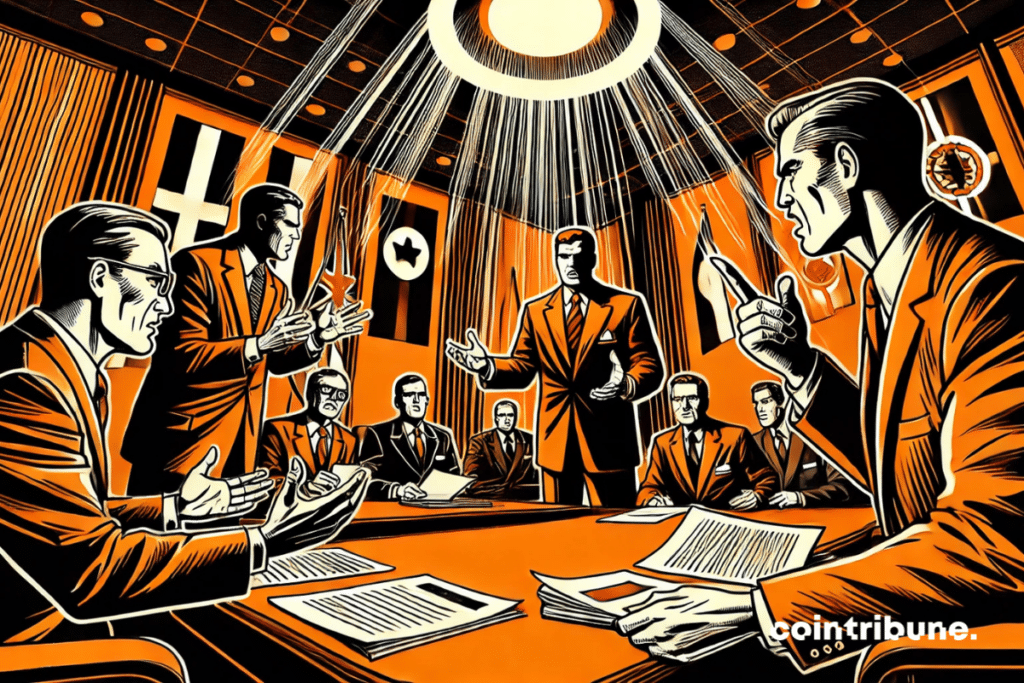Over 50 Nations Scramble After Trump’s Trade Move
0
0
The Trump administration has just triggered a real commercial earthquake. Through the imposition of a universal tariff of 10 %, soon to be increased to 34 % for certain countries, Washington is reviving an aggressive protectionist strategy. This decision, counter to multilateral rules, threatens to reshape global trade and has already sparked reactions from more than 50 states. In a tense international context, this major shift could mark the beginning of a new era of economic confrontation.

A Customs Thunderclap : Trump Revives the Protectionist Machine
“More than 50 countries have contacted President Trump to negotiate new trade agreements“. This statement, made on Sunday April 6, 2025, by Kevin Hassett, Director of the National Economic Council, resonated as a warning signal on international markets.
This comes in the wake of a major protectionist turnaround: President Donald Trump has reinstated a universal tariff of 10 %, in effect since April 5. This measure is just the first step.
Starting Wednesday, new increases are expected : 20 % for imports from the European Union, 34 % for those from China. Hassett states that these measures are understood as a warning:
These countries are doing this because they understand that they will bear a significant part of these tariffs.
In defending the tariff policy on ABC, Hassett assured that the repercussions on American households would be limited: “I don’t think we will see a major impact on consumers in the U.S.“.
This position contrasts with the forecasts made by most economists, who anticipate an acceleration of inflation. The technical details of the setup reveal the priorities of the Trump administration :
- A universal tariff of 10 %, applicable to all imports, without sectoral distinction, came into effect last Saturday ;
- A targeted increase starting Wednesday for key partners : 20 % for the EU and 34 % for China;
- Some countries like Russia, Cuba, or North Korea are excluded from the setup due to existing sanctions, blocking any significant trade ;
- An announced objective of protecting American jobs, in a context of reindustrialization, according to Hassett. It’s about “treating workers fairly“.
This change in direction, bypassing multilateral institutions like the WTO, signifies a clear return to bilateral economic diplomacy, where customs pressure becomes a tool for direct negotiation.
International Reactions : Towards a Strategic Realignment of Global Trade?
In the wake of this announcement, the domino effect was almost immediate. Several dozen governments approached Washington in hopes of negotiating specific exemption or reduction terms on tariffs.
“Discussions are beginning“, clarified Kevin Hassett. He mentioned dialogues with more than fifty countries, some of which are historical partners of the United States. The aim for these states is to avoid being hit hard by a tariff increase that could impact their trade balances and domestic economies.
While some observers see it as a pressure tactic, the speed and scale of the reactions indicate a global paradigm shift.
Contrary to the frontal strategy adopted in 2018 during the previous trade war between the United States and China, this new tariff salvo seems more oriented towards creating a diplomatic power relationship.
The countries affected by the tariff increases have, for the most part, not yet formalized their response, but consultations behind the scenes are multiplying. Even powers like the European Union are finding themselves compelled to reconsider their trade position in the face of American tariff pressure, which could lead to an increased fragmentation of multilateral alliances.
This new episode paves the way for complex recompositions. It is not excluded that some countries seek to rely on alternatives to settling outside the classical system dominated by the dollar, and that cryptos, especially stablecoins or central bank digital currencies (CBDCs), gain appeal. This situation could also accelerate thoughts on the use of bitcoin as a safe haven in a context of increasing monetary uncertainty. If negotiations lead to unbalanced bilateral agreements, the landscape of world trade could be permanently modified.
0
0
 Manage all your crypto, NFT and DeFi from one place
Manage all your crypto, NFT and DeFi from one placeSecurely connect the portfolio you’re using to start.





